Share
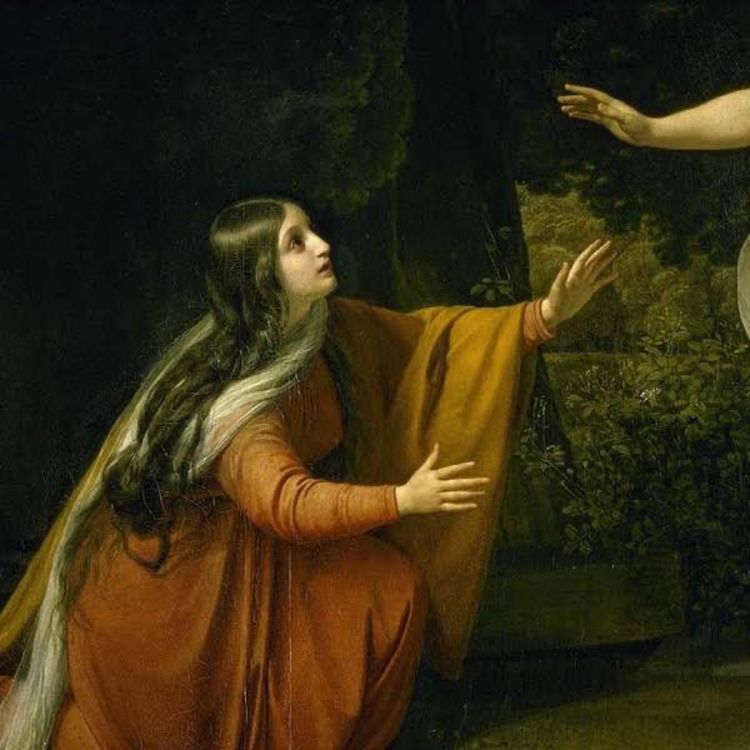
Let's Talk Religion
The Gospel of Mary - A Lost Gnostic Text?
Ep. 87
•
We celebrate Easter by looking at one of the most interesting non-canonical texts from the early development of Christianity.
Sources/Suggested Reading:
- Asgeirsson, Jon (2005). "Thomasine Traditions in Antiquity The Social and Cultural World of the Gospel of Thomas". Brill.
- Brakke, David (2012). "Gnostics: Myth, Ritual, and Diversity in Early Christianity". Harvard University Press.
- Brock, Ann Graham (2003). Mary Magdalene, The First Apostle: The Struggle for Authority". Harvard Divinity School.
- de Boer, Esther A. (2005). "The Gospel of Mary: Listening to the Beloved Disciple". Continuum.
- King, Karen L. (2003). "What is Gnosticism?". Harvard University Press.
- King, Karen L. (2003). "The Gospel of Mary of Magdala: Jesus and the first woman apostle". Polebridge Press.
- Tuckett, Christopher (2019). "The Gospel of Mary". Oxford University Press.
- Van den Broek, Roelof (2013). "Gnostic Religion in Antiquity". Cambridge University Press.
- Meyer, Marvin (ed.) (2009). "The Nag Hammadi Scriptures: The Revised and Updated Translation of Sacred Gnostic Texts Complete in One Volume ". HarperOne.
#marymagdalene #gnosticism #christianity
More episodes
View all episodes
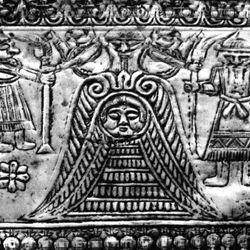
155. Zurvanism - The Zoroastrian Heresy?
31:44||Ep. 155Zurvanism is a lesser-known feature of ancient Zoroastrianism that centers on Zurvan, the god of infinite time, and the cosmic struggle between Ahura Mazda and Angra Mainyu. In this video, we explore the origins, beliefs, and historical influence of Zurvanism, what it is and isn't, and why it matters for understanding ancient Persian religion and dualism.Check out Soul Roots:https://www.youtube.com/@UCX0IxGB0xYS5kV3IX-KbBPQ Find me and my music here:https://linktr.ee/filipholmSupport Let's Talk Religion on Patreon: https://www.patreon.com/letstalkreligion Or through a one-time donation: https://paypal.me/talkreligiondonateSources/Recommended Reading:Boyce, Mary (1957). "Some Reflections on Zurvanism". Bulletin of the School of Oriental and African Studies, University of London , 1957, Vol. 19, No. 2 (1957), pp. 304-316. Cambridge University Press.Boyce, Mary (2000). "Zoroastrians: Their Their Religious Beliefs and Practices". Routledge; 2nd edition.Boyce, Mary (1996). "On the Orthodoxy of Sasanian Zoroastrianism". Bulletin of the School of Oriental and African Studies, University of London, 1996, Vol. 59, No. 1 (1996), pp. 11-28. Cambridge University Press.Boyce, Mary (1990). "Some Some Further Reflections on Zurvanism". Iranica Varia: Papers in Honor of Professor Ehsan Yarshater. Brill. Dahlén, Ashk (transl.) (2023). "Zarathustra: Sånger". h:ström.Humbach, Helmut & Pallan Ichaporia (transl.) (1994). "The Heritage of Zarathushtra: A New Translation of His Gathas. Universitatsverlag Winter. Moazami, Mahnaz (ed.) (2016). "Zoroastrianism: A collection of Articles from the Encyclopedia Iranica". ENCYCLOPAEDIA IRANICA FOUNDATION. 2 Volumes.Rose, Jenny (2019). "Zoroastrianism: An Introduction". I.B. Tauris Introduction to Religions. Bloomsbury Academic.Strausberg, Michael; & Yuhan Sohrab-Dinshaw Vevaina (ed.) (2015). "The Wiley-Blackwell Companion to Zoroastrianism". Wiley-Blackwell. Zaehner, R.C. (1955). "Zurvan: A Zoroastrian Dilemma". Oxford.https://www.iranicaonline.org/articles/zurvanism/https://www.iranicaonline.org/articles/zurvan-deity/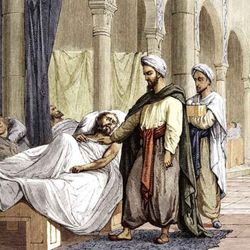
154. Abu Zayd al-Balkhi - The Man Who Discovered Mental Health 1,000 Years Too Early
35:58||Ep. 154Cognitive Behavioral Therapy (CBT) is often seen as a modern invention—but its core ideas were explored over 1,100 years ago by the 9th-century scholar Abu Zayd al-Balkhi.In this video, we explore al-Balkhi’s groundbreaking writings on mental health, anxiety, depression, emotional regulation, and the connection between thoughts and behavior—ideas that closely resemble modern psychology and CBT.Find me and my music here:https://linktr.ee/filipholmSupport Let's Talk Religion on Patreon: https://www.patreon.com/letstalkreligion Or through a one-time donation: https://paypal.me/talkreligiondonate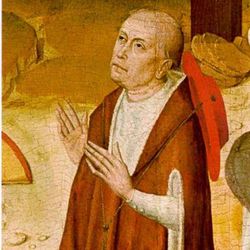
153. Nicholas of Cusa: Life & Philosophy
01:11:12||Ep. 153Nicholas of Cusa was a 15th-century philosopher, theologian, and mathematician whose ideas anticipated modern science and philosophy. In this video, we explore his life, key works, and radical concept of “learned ignorance,” as well as his views on infinity, knowledge and religious diversity. Discover why this forgotten medieval thinker still matters today.Find me and my music here:https://linktr.ee/filipholmSupport Let's Talk Religion on Patreon: https://www.patreon.com/letstalkreligion Or through a one-time donation: https://paypal.me/talkreligiondonateSources/Recommended Reading:Bond. H. Lawrence (edited and translated by) (1997). "Nicholas of Cusa: Selected Spiritual Writings". Classics of Western Spirituality Series. Paulist Press.Hopkins, Jasper (translated by) (1986). "NICHOLAS OF CUSA’S DE PACEFIDEI AND CRIBRATIO ALKORANI". Second edition. THE ARTHUR J. BANNING PRESS MINNEAPOLIS.McGinn, Bernard. "The Presence of God" Series, in several volumes. Perhaps the best and most comprehensive introduction to Christian mysticism. Published by Crossroad Publishing Co.Valkenberg, Pim (2011). "Sifting the Qur’an: Two Forms of Interreligious Hermeneutics in Nicholas of Cusa". In "Interreligious Hermeneutics in Pluralistic Europe", Currents of Encounter Online, Volume: 40. Brill.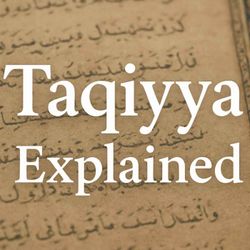
152. What is Taqqiyya?
25:57||Ep. 152In this video, I explain the meaning of taqiyya in Islamic tradition & where it comes from. We look at its historical context, what scholars actually say about it historically and today.Find me and my music here:https://linktr.ee/filipholmSupport Let's Talk Religion on Patreon: https://www.patreon.com/letstalkreligion Or through a one-time donation: https://paypal.me/talkreligiondonateSources/Recommended Reading:Hallaq, Wael (2004). "The Origins and Evolution of Islamic Law". Cambridge University Press. Hallaq, Wael (2009). "Sharia: Theory, Practice, Transformations". Cambridge University Press. Stewart, Devin (2013). "Dissimulation in Sunni Islam and Morisco Taqiyya*". AL-QANTARA, XXXIV 2, 2013, pp. 439-490.https://islamqa.org/hanafi/askimam/81133/?utm
151. What is Sharia Law, Really?
33:52||Ep. 151What is Sharia law, really? In this video, we break down the meaning of Sharia, explain where it comes from, and discuss some of the most misunderstandings you’ve probably heard online.Find me and my music here:https://linktr.ee/filipholmSupport Let's Talk Religion on Patreon: https://www.patreon.com/letstalkreligion Or through a one-time donation: https://paypal.me/talkreligiondonateSources/Recommended Reading:Hallaq, Wael (2004). "The Origins and Evolution of Islamic Law". Cambridge University Press. Hallaq, Wael (2009). "Sharia: Theory, Practice, Transformations". Cambridge University Press. Kamali, Mohammad Hashim, 'Shariah: Meaning, Definition, History, and Sources', Shariah and the Halal Industry (New York, 2021; online edn, Oxford Academic, 19 Aug. 2021).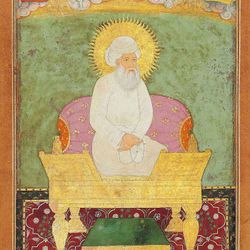
150. Abd al-Qadir al-Jilani & The Qadiri Sufi Order
47:48||Ep. 150The Qadiriyya is often called the most widespread Sufi order in the world — but how did one 12th-century mystic in Baghdad inspire a global movement that still thrives today?This episode explores the life and legacy of Abd al-Qadir al-Jilani, the saint revered across the Muslim world as Ghaus al-A‘zam — “the greatest helper.”From medieval Baghdad to North Africa, Turkey, South Asia, and beyond, we trace how his teachings spread across continents, shaping Islamic spirituality for nearly 900 years.Find me and my music here:https://linktr.ee/filipholmSupport Let's Talk Religion on Patreon: https://www.patreon.com/letstalkreligion Or through a one-time donation: https://paypal.me/talkreligiondonateSources/Recommended Reading:Abun-Nasr, Jamil M. (2007). "Muslim Communities of Grace: The Sufi Brotherhoods in Islamic Religious Life". C Hurst & Co Publishers Ltd.Knysh, Alexander (2012). "Islamic Mysticism: A Short History". BRILL. Malik, Hamza (2018). "The Grey Falcon: The Life and Teaching of Shaykh 'Abd Al-Qadir Al-Jilani". BRILL.Trimingham, John Spencer (1971). "Sufi Orders in Islam". Oxford University Press.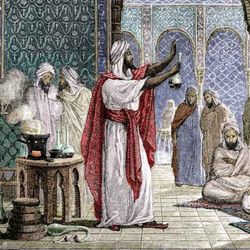
149. What is Alchemy?
01:03:12||Ep. 149Discover the fascinating history of alchemy — the ancient art that aimed to turn base metals into gold. From mystical experiments to the birth of modern chemistry, this video explores how alchemists shaped science, philosophy, and the human quest for knowledge.Find me and my music here:https://linktr.ee/filipholmSupport Let's Talk Religion on Patreon: https://www.patreon.com/letstalkreligion Or through a one-time donation: https://paypal.me/talkreligiondonateSources/Recommended Reading:Abt, Theodore (ed.) (2007). "Corpus Alchemicum Arabicum: Book of the Explanation of the Symbols Kitab Hall Ar-Rumuz". Psychological Commentary by Marie-Louise Von Franz. Living Human Heritage Publications. Adamson, Peter (2021). "Al-Rāzī". Great Medieval Thinkers. OUP USA.Corriente, Federico & Ed Emery (translated by) (2004). "Twenty-seven Muwashshashaat and One Zajal by Ibn al-'Arabi of Murcia (1165-1240)". Dodge, Bayard (translated by) (1998). "The Fihrist: A 10th Century Ad Survey of Islamic Culture". Kazi Pubns Inc. Grimes, Shannon (2018). "Becoming Gold: Zosimos of Panopolis and the Alchemical Arts in Roman Egypt". Rubedo Press.Hirtenstein, Stephen (translated by) (2018). "The Alchemy of Human Happiness (Mystical Treatises of Muhyiddin Ibn 'Arabi)". Anqa Publishing.Principe, Lawrence (2013). "The Secrets of Alchemy". University of Chicago Press.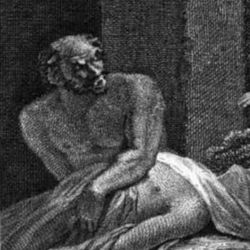
148. What Is a Ghoul? (The Terrifying Monster of Arabian Myth)
27:15||Ep. 148Long before modern horror imagined zombies or demons, ancient Arabic folklore spoke of the Ghoul (غول) — a terrifying shape-shifting creature haunting deserts, ruins, and graveyards. In this video, we uncover the true origins of the Ghoul: its roots in pre-Islamic Arabian mythology, its transformation through Islamic tradition, and its lasting influence on global horror culture.Find me and my music here:https://linktr.ee/filipholmSupport Let's Talk Religion on Patreon: https://www.patreon.com/letstalkreligion Or through a one-time donation: https://paypal.me/talkreligiondonateSources/Recommended Reading:Al-Rawi, Ahmed (2009). "The Mythical Ghoul in Arabic Culture". Article. The University of California.Al-Rawi, Ahmed (2009). "The Arabic Ghoul and its Western Transformation". Folklore 120 (December 2009): 291–306. Lebling, Robert & Tahir Shah (2014). "Legends of the Fire Spirits: Jinn and Genies from Arabia to Zanzibar. I.B. Tauris.Henninger, Joseph (2004). "Beliefs in Spirits among the Pre-Islamic Arabs". In "Magic and Divination in Early Islam". Edited by Emile Savage-Smith. Ashgate Publishing Company.Rašić, Dunja (2024). "Bedeviled: Jinn Doppelgangers in Islam and Akbarian Sufism". State University of New York Press."The Annotated Arabian Nights: Tales from 1001 Nights". Edited by Paulo Lemos Horta. Translated by Yasmine Seale. Liveright Publishing Corporation.Online version of Qazwini's "Wonders of Creation": https://shamela.ws/book/30006/310?utm_source=chatgpt.com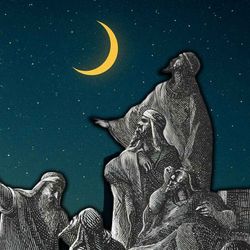
147. The Sabians of Harran: A Lost Religion
01:00:30||Ep. 147Who were the mysterious Sabians of Harran? This forgotten group of ancient star-worshippers left behind one of history’s most fascinating mysteries. We look at the contemporary sources to (try to) find out what these ancient peoples actually believed and practiced.Find me and my music here:https://linktr.ee/filipholmSupport Let's Talk Religion on Patreon: https://www.patreon.com/letstalkreligion Or through a one-time donation: https://paypal.me/talkreligiondonateAlso check out the Let's Talk Religion Podcast: https://open.spotify.com/show/0ih4sqtWv0wRIhS6HFgerb?si=95b07d83d0254bSources/Recommended Reading:Dodge, Bayard (translated by) (1970). "The Fihrist of al-Nadim: A Tenth Century Survey of Muslim Culture". Columbia University Press. Gunduz, Sinasi (1994). "The Knowledge of Life: The Origins and Early History of the Mandaeans and Their Relation to the Sabians of the Qur'an and to the Harranians". Oxford University Press.Hjärpe, Jan (1972). "Analyse critique des traditions arabes sur les Sabéens Harraniens". Doctoral thesis. University of Uppsala.Moses Maimonides - "The Guide for the Perplexed - A New Translation". Translated with commentary by Lenn E. Goodman & Philip I. Lieberman.Stanford University Press.Tardieu, Michel (1986). "Sabiens coraniques et Sabiens' de Harran'. Journal Asiatique 274, 1-44.Tardieu, Michel (1987). "Les calandriers en usage a Harran d'aprés les sources arabes et le commentaire de Simplicius a la physique d'Aristotle". In Ilsetraut Hadot, ed., "Simplicius: Sa vie, son aevre, sa survie. Acted du colloque international de Paris (28 Sept.-1 Oct. 1985)". Berlin, de Gruyter, 40-57).Van Bladel, Kevin (2009). "The Arabic Hermes: From Pagan Sage to Prophet of Science". OUP USA.Van Bladel, Kevin (2017). "From Sasanian Mandaeans to Sabians of the Marshes". Brill.